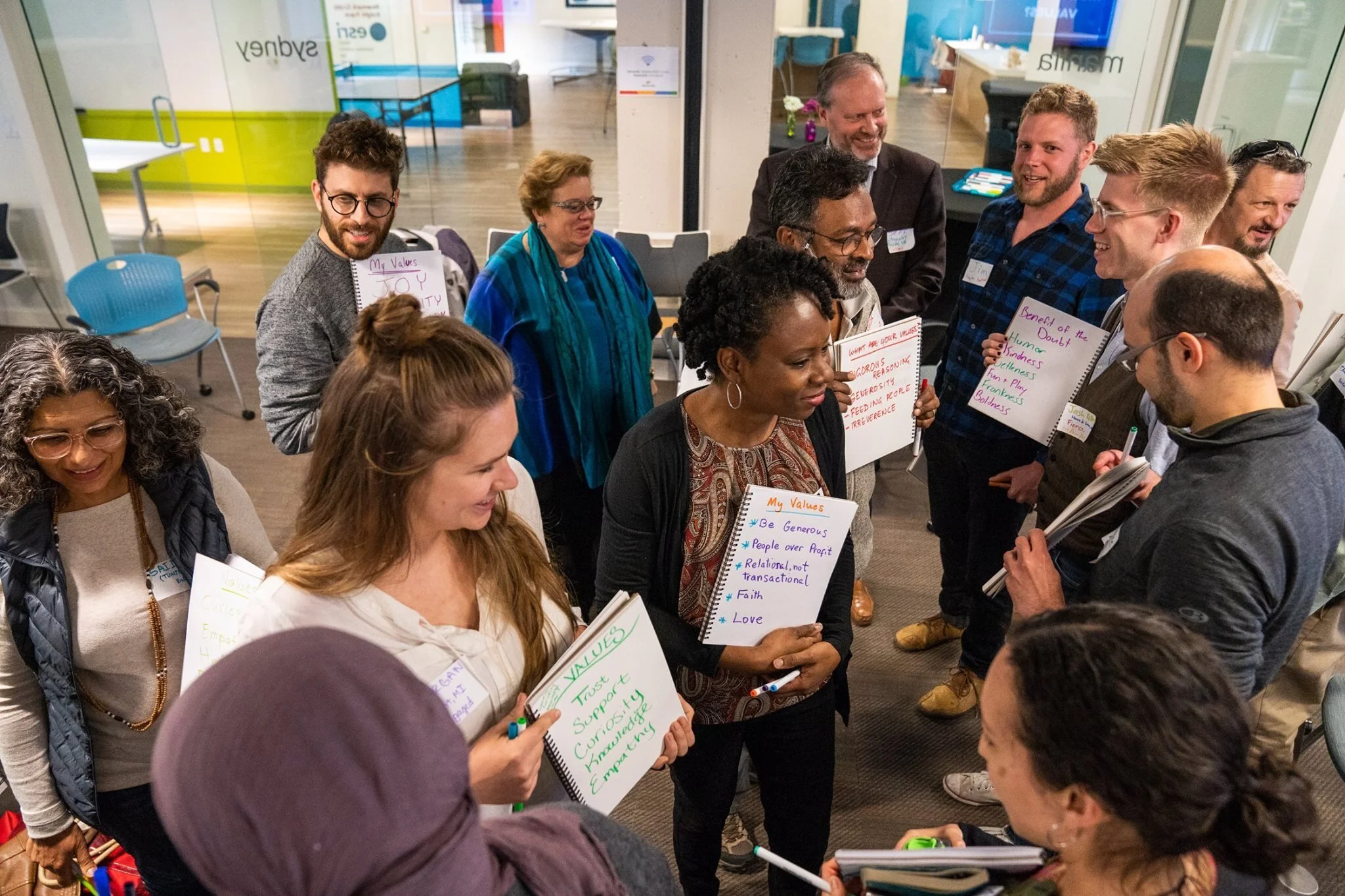Democracy Dialogues
From Fall 2017-2019, we hosted a series of nine (9) in-person convenings - called Democracy Dialogues - which brought together American and international democracy defenders to learn from one another. The overarching conversations in these events about pressing challenges to domestic and international democracy helped us identify specific countries and issues to zoom in on for the case study collection.
Democracy Dialogue #2
January 11, 2018
Comparing Populism and Corruption in the US and Europe
KEY TAKEAWAY: Liberals in the US, UK, etc. need to be cautious and not come off as elitist, but instead acknowledge the grievances underlying populist (including right wing and nativist populist) movements and find ways to address those grievances.
Democracy Dialogue #4
June 2, 2018
What Happens When Heads of State Are Investigated
KEY TAKEAWAY: Strategic litigation is an important strategy for dealing with a corrupt head of state. But recognize that prosecuting such leaders on corruption could take years to see results/a trial, so you need to develop strategic messaging and other advocacy opportunities in the interim so as to not lose momentum. Expect smear campaigns against the prosecution and those leading it, and combine popular mobilization with strategic litigation for a more effective approach. This means educating people throughout the process - without public support, these legal efforts are less likely to succeed. This should include a campaign or other effort involving mainstream media.
Democracy Dialogue #1
December 14, 2017
Democracy Defenders in Dialogue - Sharing Lessons from Investigative Journalism and Anti-Corruption Advocacy Partnerships Around the World
KEY TAKEAWAY: International collaborations of investigative journalism and advocates to can be an incredibly effective way to combat international kleptocracy and corruption (ex: Panama Papers), each party brings its own strength, and these collaborations can help raise public interest and awareness on efforts to combat corruption domestically and transnationally.
Democracy Dialogue #3
May 7, 2018
International Multi-stakeholder Platforms and Going Local
KEY TAKEAWAY: Civil society in US and other countries can both leverage multi-stakeholder platforms like the Open Government Partnership in different ways. It seems best thing MSIs can do is shift the norms/expectations of real participation, and 2) be the experimental proving grounds to figure out precise replicable processes for so called co creation of civil society and government to truly jointly develop policies and priorities, especially at the local level.
Democracy Dialogue #5
July 18, 2018
International Multi-stakeholder Platforms and Going Local
KEY TAKEAWAY: In order to keep momentum and commitment from new governments to follow through on reforms their previous governments made through the Open Government Partnership OGP, find ways to help those new administrations’ message and make these reforms their own. Naturally, any government wants to distance itself from the one that came just before it, so give them ways to 'rebrand' their open government work and to use platforms like OGP to fulfill some of their campaign pledges and make some early wins with their constituents. (This session was held during the Open Government Partnership’s Global Summit, and a full write-up is here).
Democracy Dialogue #6
September 25, 2018
Brainstorm Session on Defending Democracy at Home and Abroad
KEY TAKEAWAY: Participants agreed on a short-list of priority issues related to American democracy challenges today and to the four themes of this program. Regarding Press Freedom, top areas of concern included repression of free media, increase of state-sponsored media or control of media, and the rise of misinformation. On the positive side, there was interested in media literacy, citizen journalism, and reviving local news efforts. Regarding Corruption, top red flags were the influence of money in politics and politicization of judiciary, and top promising areas included strategic litigation, campaign finance, and lobby regulation. Regarding Civil Rights/Liberties, top concerns were related to xexophobia, closing civic space, and deepening polarization and top potential solutions were learning from popular social movements and campaigns to know your rights. Finally Regarding Elections, top concerns were foreign interference, digital manipulation and voter suppression and top areas of solutions were public financing of campaigns and learning from proportional voting systems.
Democracy Dialogue #8
December 3, 2018
Campaign Finance Reform and Pledges to Limit the Influence of Money in Politics
KEY TAKEAWAY: "3 for 3" was a highly successful grassroots campaign in Mexico that completely shifted the norm/expectations of what information any aspiring political discloses (from MPs and governor candidates to presidential). A few key tactics that made this campaign successful were: early decentralization of ownership and messaging (anyone who expressed interest early was appointed to lead the collection of petition signatures in their region), and was messaging that fit with the common people's perceptions of politics however less than ideal they were (most people think politics is about parties buying votes from people, so the campaign encouraged people to ask candidates to disclosure first if they ask them for their vote).
Democracy Dialogue #7
November 1, 2018
Election Integrity in the Digital Age
KEY TAKEAWAY: The digital era presents new opportunities and new threats to election integrity. Maintaining a trail of paper ballots is one way to protect against digital manipulation of votes. Meanwhile, state and local authorities often responsible for elections administration in the US and elsewhere are often under-resourced, so training and support from national-level resources and organizations can help.
Democracy Dialogue #9
July 22, 2019
Tactics to Protect Civic Space in Russia, the US and Beyond
KEY TAKEAWAY: Civic space challenges in India today are related to the Hindu nationalist position of current president Modi, so some NGOs and activists supporting minority groups like Muslims and Dalits are having their ability to organize restricted. Meanwhile in Russia activists often have to face violence directly from the state and from quasi non-state actors. Regarding possible future civic space restrictions in the US, participants discussed the importance of not demonizing the other and making sure that restrictions on free assembly or association do not disproportionately affect minority groups.










